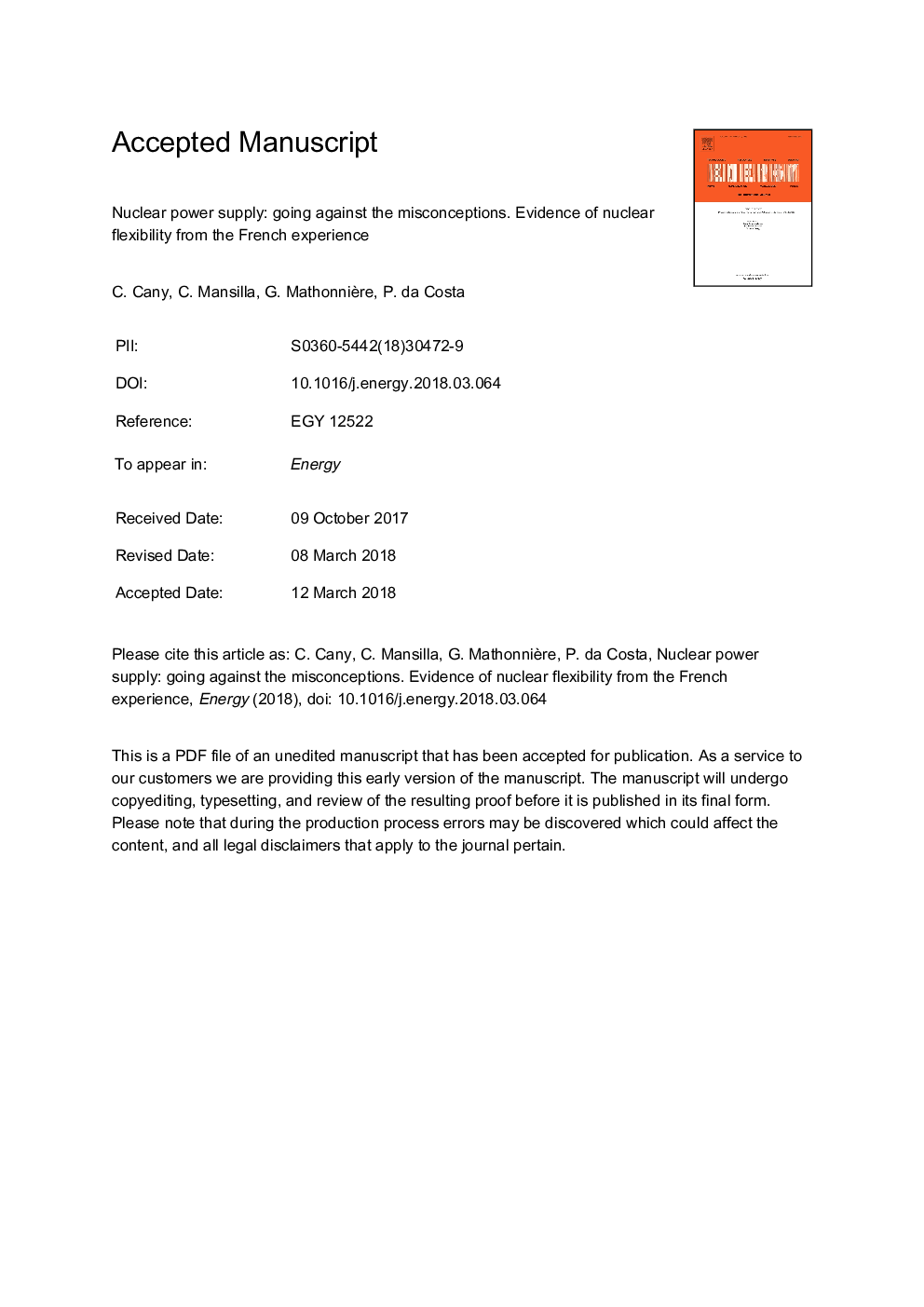| Article ID | Journal | Published Year | Pages | File Type |
|---|---|---|---|---|
| 8071751 | Energy | 2018 | 18 Pages |
Abstract
In the context of power system decarbonisation, higher shares of variable renewables are usually promoted inducing higher flexibility needs. Worthwhile flexibility can be provided by a number of solutions, including baseload power modulation. Nuclear power is usually presented as poorly-flexible, and, as such, a brake to renewable development. This article aims at providing an assessment of nuclear flexibility from a technical viewpoint, based on both a literature review (theory) and industrial feedback of the French nuclear operator (practice). From the confrontation of theory and practice, the actual potential of nuclear power is analysed, both at the reactor scale and the fleet scale. The data shows that, today, nuclear reactors are flexible, and are currently operated in France as such (approximately 40% of the fleet is currently involved in load-following). They also demonstrate that there is a margin to further take advantage of this potential, by increasing the number of reactors involved in load-following operations and the number of operations realised by each reactor.
Related Topics
Physical Sciences and Engineering
Energy
Energy (General)
Authors
C. Cany, C. Mansilla, G. Mathonnière, P. da Costa,
